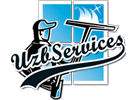Pressure washing and power washing are terms that many people use interchangeably, yet there are distinct differences between the two methods. In this blog, we’ll unravel these differences in a simple and friendly manner to help you decide which method suits your cleaning needs best.
1. Understanding Pressure Washing
Pressure washing uses high-pressure cold water to clean surfaces, effectively removing dirt, mud, and grime from non-sensitive areas. It is ideal for driveways, decks, and siding where dirt is superficial and easily dislodged. Many homeowners choose pressure washing services for its cost-effectiveness and simplicity, providing excellent results without risking surface damage from heat.
The versatility of pressure washers allows them to be used on light-duty tasks, like patio furniture or fencing, as well as heavier jobs like concrete surfaces. Professionals like UZB Services emphasize proper pressure adjustment to protect delicate materials while ensuring a thorough clean.
2. What is Power Washing?
Power washing differs from pressure washing by combining high pressure with heated water. The heat helps remove tougher stains, grease, mold, or mildew making it ideal for garage floors, industrial areas, or heavily soiled surfaces. Providers like Bright Exterior Cleaning highlight the sanitizing benefits of heated water for surfaces that require deeper cleaning.
Power washing’s combination of heat and pressure makes it more efficient at tackling stubborn residues than cold-water pressure washing alone. Professionals often recommend power washing for tough exterior cleaning tasks where ordinary methods might fall short.
3. Key Differences Between Pressure and Power Washing
The main distinction between the two methods is temperature: power washing uses hot water, while pressure washing relies on cold water. This difference impacts cleaning power, surface suitability, and cost.
Key differences to consider:
✔ Power washing uses heat for tough stains like mold, oil, and mildew
✔ Pressure washing is more economical and ideal for routine maintenance
✔ Surface type determines the safest method (delicate surfaces benefit from cold-pressure cleaning)
✔ Power washing equipment tends to be more expensive due to heating components
Understanding these differences ensures the right choice for your home and helps avoid accidental damage. Residential experts like UZB Services can advise on which method best fits your property’s needs.
4. When to Use Each Method
Pressure washing is excellent for routine tasks like cleaning patios, walls, and driveways where grime is light. Power washing is better for stubborn substances like salt, mildew, or oil stains, where heat helps break down residues efficiently.
Homeowners in Atlanta, including areas like Brookhaven, can rely on UZB Services for tailored recommendations, ensuring that each surface receives the proper cleaning method without damage.
For delicate surfaces, such as painted shingles or older siding, a gentler approach like soft washing is advised to preserve exterior finishes while maintaining cleanliness.
5. Pros and Cons
Both methods have advantages depending on the cleaning requirements. Pressure washing is more affordable, easier to handle, and sufficient for general upkeep. Power washing offers deeper cleaning but may be excessive for minor jobs or sensitive surfaces.
Pros and cons of each method:
✔ Pressure washing Cost-effective, simple, safe for routine cleaning
✔ Power washing Highly effective for tough stains, ideal for industrial or heavily soiled surfaces
✔ Risk assessment Professionals like UZB Services ensure the correct method is used to avoid damage
Consulting experts guarantees that you choose the safest and most efficient approach, especially for challenging cleaning scenarios.
6. Making the Right Choice for Your Cleaning Needs
In conclusion, pressure washing and power washing serve different purposes. Pressure washing is ideal for routine, economical cleaning, while power washing excels for deep cleaning and stain removal. Understanding your surfaces, the type of debris, and the desired results will guide you to the most suitable choice.
Professional teams like UZB Services can assess your home, recommend the appropriate method, and provide expert cleaning services that protect and enhance your property. With the right approach, you can achieve a clean, well-maintained exterior safely and efficiently.


